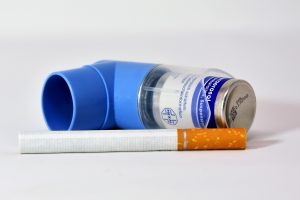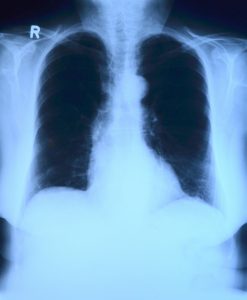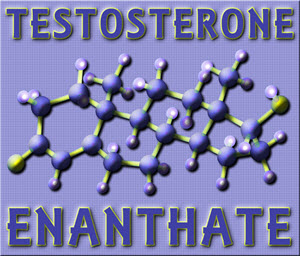 Yes, you read that right. Testosterone may actually help with your asthma and subdue the symptoms of it. Asthma is a fairly common disease in today’s world and it could only get worse with increasing air pollution in our cities around the world. It is a disease that is very easy to treat but there is no actual cure for it. Unfortunately, it can cause many different problems for the patients who suffer from asthma. However, recent research has shown some promising results with the use of testosterone to subdue the symptoms of asthma.
Yes, you read that right. Testosterone may actually help with your asthma and subdue the symptoms of it. Asthma is a fairly common disease in today’s world and it could only get worse with increasing air pollution in our cities around the world. It is a disease that is very easy to treat but there is no actual cure for it. Unfortunately, it can cause many different problems for the patients who suffer from asthma. However, recent research has shown some promising results with the use of testosterone to subdue the symptoms of asthma.
What is Asthma?
Asthma is a chronic condition that constricts the airways of the lungs which are the tubes carrying air in and out of the lungs. With asthma, these airways become inflamed and narrowed, causing issues with getting enough air and oxygen. It can be a very scary experience, especially if you are not used to it or are experiencing an attack for the first time.
Typically, asthma begins during childhood. It starts with some wheezing, coughing or tightness in the chest, all ranging from mild to severe in intensity. An attack can happen every day or only once in awhile. Certain triggers can start an attack or make the symptoms much worse, such as cold air. When the symptoms are severe, it is considered an asthma attack.
 Cause of Asthma
Cause of Asthma
The cause of asthma is actually unknown and may vary from person to person. It is believed that it is the result of an overactive immune system reacting to a substance in the lungs. The immune system reacts in the same way that it does to an allergen, by creating inflammation. This will make the airways swell, narrow and produce mucus, making it harder to breathe. In addition, the muscles around the airways may tighten, called a bronchospasm, making it even harder to breathe.
It is still not clear as to why one person can overreact to an exposure while others do not. Perhaps it all comes down to genetics, making some people more susceptible to asthma and an overactive immune system in the lungs.
Most people have seen the inhaler that is used to treat asthma when someone is having an attack, providing almost immediate relief to the patient. They are able to get their breath back. Even though this brings immediate relief, asthma is still an ordeal to live with – especially if you are someone who forgets their inhaler frequently. A poor respiratory system is not something that anyone wants, because it can also lead to other issues, not just asthma.
Testosterone Could Help Suppress Asthma
Recent scientific research has involved the study of patterns in patients with their contraction of the disease. One of their conclusions was that testosterone could help to suppress asthma that is caused by the inhalation of airborne allergens, such as pollen or dust. Because of the involvement of testosterone, this could explain why more boys than girls suffer from the lung disease.
Unfortunately, the researchers did not uncover anything cut and dry. The relationship between asthma and testosterone is rather complex and not well understood as of yet. But there is a relationship between the disease and the male sex hormone. It appears that testosterone has an influence over a group of immune cells that are involved in the first line of defense against a foreign invader. These immune cells are also the ones responsible for the inflammation in the lungs.
 Testosterone Reduces Inflammatory Response in Lungs
Testosterone Reduces Inflammatory Response in Lungs
In the study, mice were used as the subjects. A group of mice were exposed to an allergen after being given testosterone and the observation was that the hormone significantly reduced the inflammatory response in the lungs. It’s interesting that in this study testosterone was able to reduce the inflammation in the lungs while another study involving COVID-19 (another disease that involves major inflammation in the lungs) showed that men with higher testosterone levels were more likely to suffer less from the Coronavirus – the lower the testosterone, the worse the symptoms of COVID.
Research involving sex hormones and how they affect physiological, as well as psychological, reactions in the human body could help us uncover the differences between the sexes in terms of disease susceptibility. Why are males more susceptible to asthma and COVID-19? It’s time to study the relationship between the immune system and sex hormones more. The result just may be better treatment methods and better ways to manage symptoms.
Asthma Affects Millions of People Around the World
Asthma is a chronic disease that has affected people around the world, in the millions. It can be particularly scary, especially as a child, and no parent wants to see their child frightened, suffering and clamoring for air. This is why research like this is like a breath of fresh air – no pun intended.
The researchers of this study wanted to look into the role of hormones in the response and resistance to asthma because of patterns that emerged in the statistics of asthma rates – and we are happy that they did.
 In children, boys are more likely to develop asthma than girls. However, once girls and boys reach puberty, the rates of asthma then start to switch, with girls getting asthma at increasing rates and by midlife, women are more likely to have asthma than men. And what happens during puberty? Increased production of sex hormones such as testosterone and estrogen. These hormones are what drives the changes in behavior and appearance of young boys and girls, such as aggression, growth and facial hair growth in boys. With the switch in rates of asthma development between the sexes, the researchers were intrigued.
In children, boys are more likely to develop asthma than girls. However, once girls and boys reach puberty, the rates of asthma then start to switch, with girls getting asthma at increasing rates and by midlife, women are more likely to have asthma than men. And what happens during puberty? Increased production of sex hormones such as testosterone and estrogen. These hormones are what drives the changes in behavior and appearance of young boys and girls, such as aggression, growth and facial hair growth in boys. With the switch in rates of asthma development between the sexes, the researchers were intrigued.
With these results, testosterone seeming to reduce inflammation and suppress the symptoms of asthma in patients, it’s clear that sex hormones have more to do in our bodies than initiate puberty and stimulate the sexual activities of the human body. Sex hormones appear to reduce inflammation, affect our behavior and provide protection against certain infections. There is so much more to learn! Follow our blog to stay up-to-date with the most recent hormone news.
Reference
Contact Us Today For A Free Consultation

- Cano's spokeswoman was client of Biogenesis [Last Updated On: January 25th, 2024] [Originally Added On: May 4th, 2013]
- Documents: Cano associate was client of clinic [Last Updated On: January 25th, 2024] [Originally Added On: May 4th, 2013]
- Sources: Cano associate was Biogenesis client [Last Updated On: January 25th, 2024] [Originally Added On: May 4th, 2013]
- Early Stage Testicular Cancer - Surveillance Is Best Follow-Up Strategy [Last Updated On: January 25th, 2024] [Originally Added On: May 18th, 2013]
- 2013 Endocrine Function Testing Market in Europe: Hospitals, Commercial Labs, Physician Offices, Ambulatory Care Centers [Last Updated On: January 25th, 2024] [Originally Added On: June 14th, 2013]
- Europe Endocrine Function Testing Market Studied by VPG in Cutting-Edge Report Now Available at MarketPublishers.com [Last Updated On: January 25th, 2024] [Originally Added On: June 18th, 2013]
- A More 'Natural' Version Of IVF Proves A Success [Last Updated On: January 25th, 2024] [Originally Added On: June 19th, 2013]
- Weight Loss Cure with Metabolic Cookbook - Video [Last Updated On: January 25th, 2024] [Originally Added On: July 12th, 2013]
- Weight Loss Drops - Are They A Scam? - Video [Last Updated On: January 25th, 2024] [Originally Added On: July 12th, 2013]
- Abbott Features Solutions to Help Labs Prepare for the Evolving Healthcare Landscape at the American Association for ... [Last Updated On: January 25th, 2024] [Originally Added On: July 30th, 2013]
- How Testicular Cancer Is Diagnosed | Testicular Cancer - Video [Last Updated On: January 25th, 2024] [Originally Added On: August 11th, 2013]
- 2014 Opportunities in the US Clinical Chemistry and Immunodiagnostics Markets [Last Updated On: January 25th, 2024] [Originally Added On: September 27th, 2013]
- Serie A - Doping ban overturned on cancer sufferer Acerbi [Last Updated On: January 25th, 2024] [Originally Added On: January 8th, 2014]
- Health Highlights: Jan. 8, 2014 [Last Updated On: January 25th, 2024] [Originally Added On: January 8th, 2014]
- Testosterone Replacement Therapy [Last Updated On: December 9th, 2023] [Originally Added On: January 19th, 2014]
- Paid Hepatitis C Clinical Trial Now Enrolling at Avail Clinical Research near Orlando, Florida; Accepting M/F Patients ... [Last Updated On: January 25th, 2024] [Originally Added On: January 22nd, 2014]
- Luteal Phase: The Uterine Lining Phase - Video [Last Updated On: January 25th, 2024] [Originally Added On: April 10th, 2014]
- Doping case against Acerbi dismissed [Last Updated On: January 25th, 2024] [Originally Added On: April 15th, 2014]
- Drugs that Cause Gynecomastia [Last Updated On: January 25th, 2024] [Originally Added On: May 14th, 2014]
- Illegal Online Meds Targeted in Worldwide Crackdown, FDA Says [Last Updated On: January 25th, 2024] [Originally Added On: May 24th, 2014]
- Biogenesis' Bosch surrenders in PEDs case [Last Updated On: January 25th, 2024] [Originally Added On: August 5th, 2014]
- Duchess of Cambridge 'hugely disappointed' after being forced to pull out of yet another engagement due to morning ... [Last Updated On: January 25th, 2024] [Originally Added On: October 1st, 2014]
- Kate, Duchess of Cambridge dazzles in baby blue gown at the Natural History Museum [Last Updated On: January 25th, 2024] [Originally Added On: October 22nd, 2014]
- 'They're poisoning us'. How religious leaders are hindering vaccination programmes across the world [Last Updated On: January 25th, 2024] [Originally Added On: November 14th, 2014]
- Poor prognosis germ-cell tumours are only cured in about half of patients. We aimed to assess whether treatment ... [Last Updated On: January 25th, 2024] [Originally Added On: November 23rd, 2014]
- Nursing a Grudge [Last Updated On: January 25th, 2024] [Originally Added On: January 22nd, 2015]
- Hormone Levels in Men - Testosterone Injections [Last Updated On: November 30th, 2021] [Originally Added On: September 9th, 2016]
- Human Growth Hormone May Actually IMPROVE Quadricep Strength After Reconstruction of Torn ACL [Last Updated On: September 23rd, 2024] [Originally Added On: June 22nd, 2020]
- Six Ways to Feel Good and Balance Your Hormones at the Same Time! [Last Updated On: January 25th, 2024] [Originally Added On: September 24th, 2020]
- Your Birthplace Heavily Influences Your Future Testosterone Levels [Last Updated On: August 19th, 2024] [Originally Added On: March 6th, 2021]
- Both High and Low Levels of Testosterone Correlate With Cardiovascular Issues in Men [Last Updated On: September 27th, 2024] [Originally Added On: April 14th, 2021]
- Breaking News: Testosterone May Be the Answer to Autoimmune Diseases [Last Updated On: August 24th, 2024] [Originally Added On: May 14th, 2021]
- Non-Stop Cravings for Protein? Blame it on Your Gut Hormones! [Last Updated On: September 13th, 2024] [Originally Added On: May 21st, 2021]
- BPA Here, BPA There, What’s the Reason for the Scare? [Last Updated On: September 16th, 2024] [Originally Added On: June 29th, 2021]
- Low Testosterone Linked to Depression and Suicidal Ideation [Last Updated On: August 25th, 2024] [Originally Added On: July 5th, 2021]
- It’s True: Men Today Have Less Testosterone Compared to Men a Generation Ago [Last Updated On: September 19th, 2024] [Originally Added On: July 13th, 2021]
- Losing Weight with Baratric Surgery Reverses Low Testosterone [Last Updated On: October 2nd, 2024] [Originally Added On: February 8th, 2022]
- Do Larger Testicles Make More Testosterone? [Last Updated On: July 24th, 2024] [Originally Added On: May 3rd, 2022]
- Fact or Myth: Have Testosterone Levels Really Dropped by 50% Just in the Past Two Decades? [Last Updated On: August 14th, 2024] [Originally Added On: June 4th, 2022]
- Another Analysis Shows No Cardiovascular Risks With Testosterone Therapy [Last Updated On: October 6th, 2024] [Originally Added On: November 27th, 2022]
Word Count: 1036




















